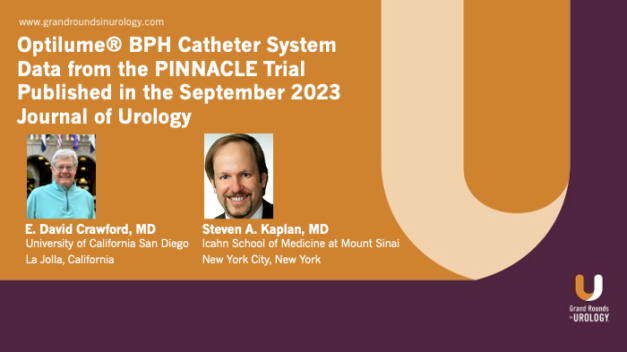Optilume® BPH Catheter System: Optilume® Care Pathway and Treatment Options
E. David Crawford, MD, Stephen Kaplan, MD, and Kevin T. McVary, MD, FACS, explore the utility of the Optilume® BPH Catheter System, a novel minimally-invasive surgical therapy (MIST). This is the second in a series supported by Laborie.
Dr. McVary begins with an overview of the current BPH market, diagnostic, and treatment algorithms and pharmaceutical/surgical treatment pathways. He illustrates the growing population of men with BPH who are underserved by pharmaceuticals, and those who are concerned about long-term effects of medication on their sexual function. Additionally, he discusses the dangers of delaying surgical management when it is indicated.
Dr. Kaplan then compares the function and outcomes of the Optilume® BPH Catheter System to those of current MIST and invasive surgeries. With an emphasis on the preservation of sexual function and low intraoperative risk, Dr. Kaplan and Dr. McVary discuss the clinical data, their experience with using the Optilume® BPH Catheter System, and their expectations for real-world data.
To see the Thought Leader Q&A session on this topic, click here [link to Q+A on GRU]. To see the first part of this series, click here. For more informational content on the latest developments on men’s health topics like BPH, please visit our Men’s Health Next-Generation Learning Center.
Read More




